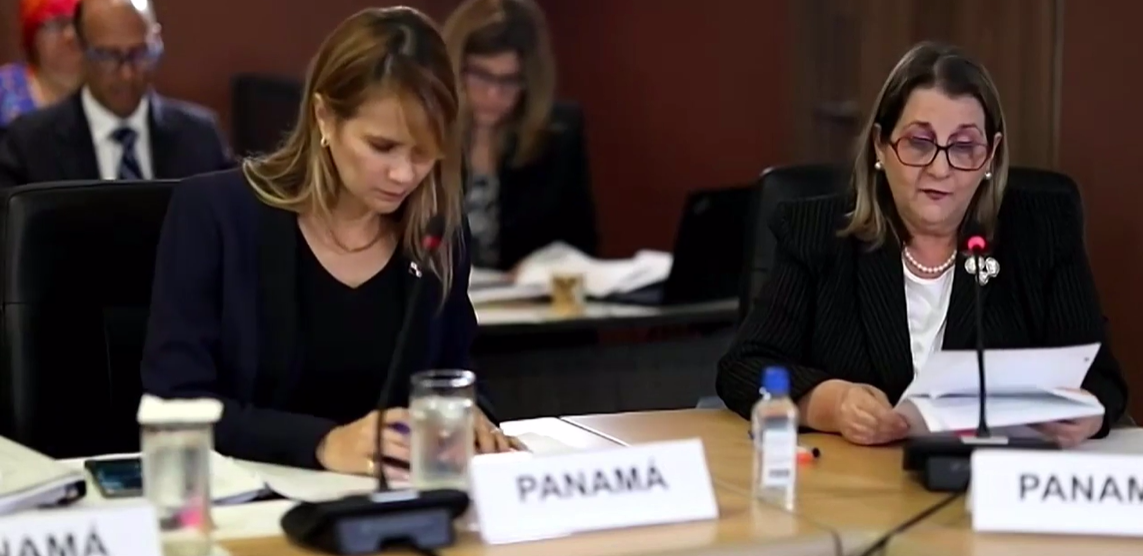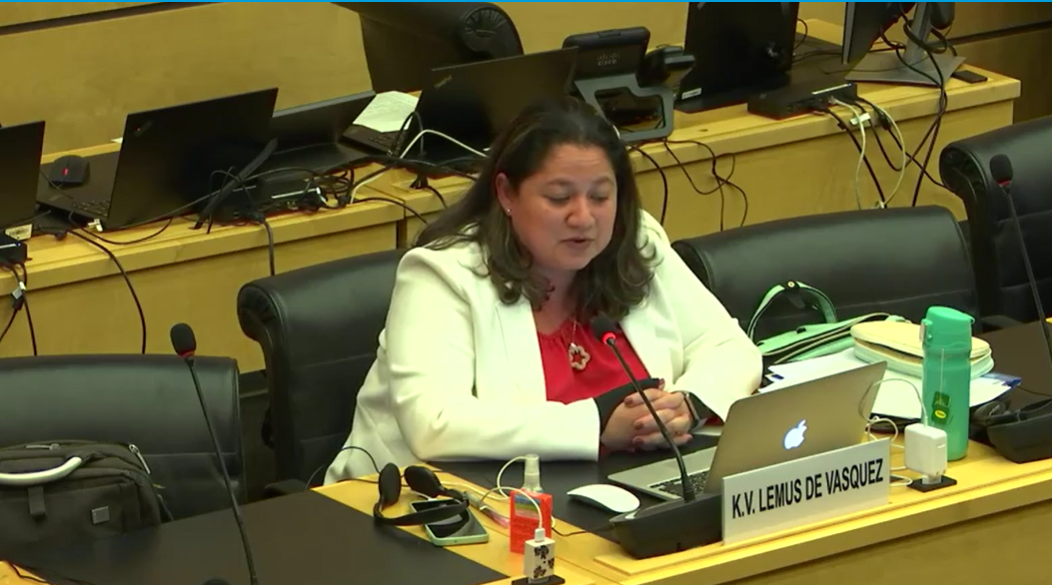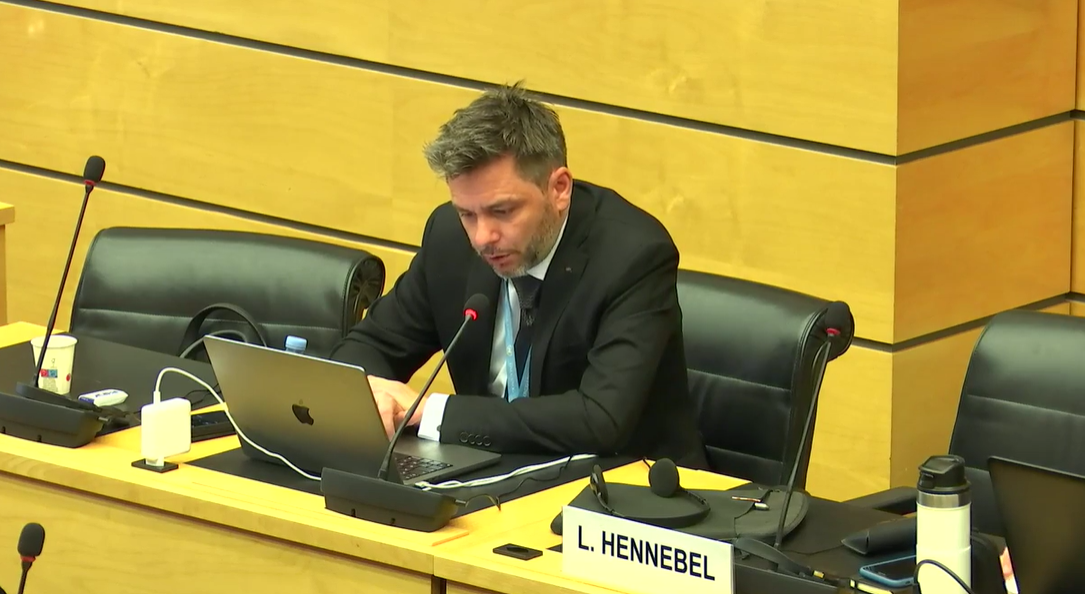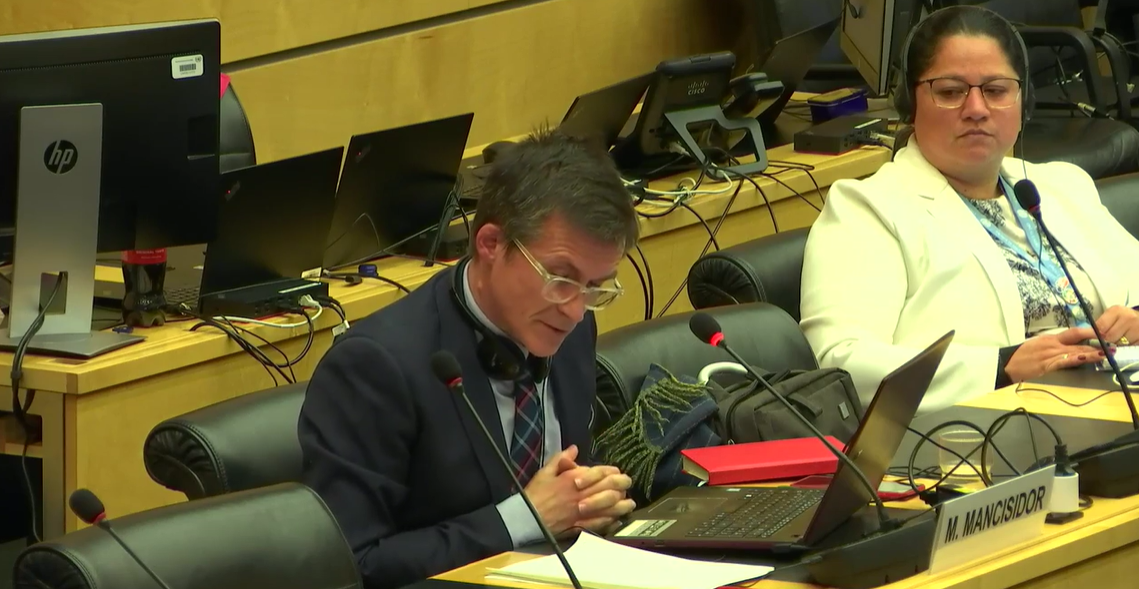CESCR 73rd Session: Between discriminatory labour policies and untransparent mechanisms, Panama faces expert´s scrutiny.

By Juanita Beltran / GICJ
Executive summary
Between the 13th to the 15th of February, during the 73rd session of the Committee on the Economic, Social and Cultural Rights (CESCR), Panama faced a line of critical questioning regarding the exclusion of migrants for certain jobs, the universal social security including disabled people, and discrimination in the workplace against the minority communities. Throughout the session, the Committee was immersed in a constructive dialogue with the state party Panama, where the country rapporteur led the questions devoted to Article 1 to 9 of the Covenant. The Covenant comprises protection for the full enjoyment of the rights to adequate food, housing, education, health, social security, water and sanitation, and work.
Geneva International Centre for Justice (GICJ) commends the efforts of the Panamanian delegation outlined in their report. Though we recognise the major leaps regarding health policies and low percentages of poverty and child free labour in the sugar industry, we condemn the lack of progress in developing an effective complaints system and the continued discrimination against minorities. Additionally, we still have concerns about Article 20 of the Constitution, which lists a number of professions that migrants are not legally allowed to practise. Panama should secure full effective enjoyment of rights to migrant workers on the same basis as their own nationals.
Background
The Committee on Economic, Social and Cultural Rights (CESCR) consists of 18 independent experts that monitor the implementation of the International Covenant on Economic, Social and Cultural Rights by its state parties. It was established by the ECOSOC resolution 1985/17 on the 28th of May 1985.
Countries are obliged to submit regular reports to the Committee on how economic, social and cultural rights have progressed in their implementation. State parties have to report within two years of accepting the Covenant and thereafter every five years. The Committee then examines and recommends specific legislative policies so that these rights can be fully enjoyed.
Panama signed the Covenant on the 27th of July 1976 and ratified the Convention on the 8th of March 1977.
Interactive Dialogue
Part I: From domestic law and the Covenant
The session started off with the first cluster of queries from the country's Special Rapporteur Ms. Klara Lemus de Vasquez. The first line of questions regarded development measures for the participation of indigenous institutions, inclusion of women to the labour market, the independence of the Ombudsman office (OHCHR) and reserved jobs for Panamanians, among others.
reserved jobs for Panamanians, among others.
The delegation then took the floor to respond. The indigenous ministry recalled law 37 of 2016, which compels all companies to undertake projects to have local consultations with the local communities through general congresses. So far, 12 consultations have been arranged. Considering the informal sector and employability of women, the delegation stated that the gender gap has been reduced in the last 5 years, positioning Panama in 9th in Latin America in terms of gender parity. Additionally, “Plan National por la Igualdad Salarial” 2022-2025 was mentioned as a measure to strengthen equal pay measures, labour protections, as well as benefits in progressing labour legality from an informal towards a formal modality of labour. Other salient aspects such as migrants’ access to formal jobs were covered by the delegation arguing that Panama has authorised temporary work permits to migrants with a recognised status, and courses are being offered to develop their skills and talents. As a signatory state of the Convention on the Rights of the Child, Panama asserted that some of the measures against child labour include action programs that offer scholarships to children, sentences that aim to punish industries that employ children and sensibilization campaigns.
Part II From labour policies, trade unions, and social security
 For the second cluster, the Country Rapporteur centred the dialogue on information about articles 6 to 9 of the Covenant, which covers labour policies across all sectors and groups of Panama. Specific concerns were raised regarding the levels of extreme and general poverty in indigenous regions, the discriminatory article on protected professions, equal pay opportunities, conditions of work for the minimum wage, child labour measures, full enjoyment of labour rights, social security and its universal coverage, among others.
For the second cluster, the Country Rapporteur centred the dialogue on information about articles 6 to 9 of the Covenant, which covers labour policies across all sectors and groups of Panama. Specific concerns were raised regarding the levels of extreme and general poverty in indigenous regions, the discriminatory article on protected professions, equal pay opportunities, conditions of work for the minimum wage, child labour measures, full enjoyment of labour rights, social security and its universal coverage, among others.
The National Secretary for Development for Panamanians began by stating that Panama has improved technical and professional training by developing courses in national centres. However, it was found that Panama does not outline specific forms of discrimination that occur during hiring, promotions and demotions, remuneration and dismissals, also several minorities covered through the Covenant´s commitments are not included in any legislative workplace non-discrimination provisions [1]. According to a study on diversity in the workplace, almost 32% of the people surveyed reported having suffered discrimination due to their sexual orientation(2].
Further, the Country Rapporteur pointed out the severe discrimination foreigners and refugees suffer when it comes to finding a job. The delegation replied that consultations are on progress to expedite employability programs. This consists of courses that aim to develop talents and skills of refugees to integrate them into the labour market. However, according to Article 20 of the Constitution there is a list of reserved professions for Panamanians. Although there are work permits in place to allow foreigners to work, there are no plans so far mentioned to revise the list. This attempts against equal opportunities of employability in Panama since the programs have still not the accessibility desired to insert foreigners into the market without barriers.
Part III On Family, adequate standard of living and mental health
 Referring to part III of the Covenant, Mr. Hennebel posed his questions referring to article 10, 11 and 12. Some of them involved concrete answers on topics such as measures against forced sterilisation in indigenous women, as well as measures to protect them and sanction the aggressors. Additionally, answers were expected on measures to counteract gender violence, child exploitation and sexual exploitation, especially migrant children in the Darien border. On Article 11, Mr. Hennebel asked about measures to protect the collective property of indigenous communities outside the “comarcas”, which are delimited territories for these peoples and their access to justice. Some other queries involved the right to water, measures to combat extreme poverty, and abortion decriminalisation.
Referring to part III of the Covenant, Mr. Hennebel posed his questions referring to article 10, 11 and 12. Some of them involved concrete answers on topics such as measures against forced sterilisation in indigenous women, as well as measures to protect them and sanction the aggressors. Additionally, answers were expected on measures to counteract gender violence, child exploitation and sexual exploitation, especially migrant children in the Darien border. On Article 11, Mr. Hennebel asked about measures to protect the collective property of indigenous communities outside the “comarcas”, which are delimited territories for these peoples and their access to justice. Some other queries involved the right to water, measures to combat extreme poverty, and abortion decriminalisation.
The delegation responded pointing out measures taken thus far. Regarding the national institute for women, law 82 of 2013 by decree 100 of 2017 establishes the Special Police Service for Combating Gender-based violence, as well as financial aid for victims and their children.
Concerning sterilisation, the health minister mentioned law 7 of 2017, which declares sterilisation as a personal and voluntary right with informed consent. However, it is only available to women older than 23 years old with 2 children. For men over 18 years old it is free and without conditions. Regarding abortion, the Panamanians constitution does not contemplate the abortion decriminalisation. It Is just legal in three specific cases: violation, risk of the mother's life, or risk of malformation of the foetus. Further, efforts to eradicate sexual and general exploitation in children could be seen in the criminalisation of child abuse with up to 6 years of imprisonment, as well as in national programs with the implementation of phase one and two of the Panama Country Program to Combat the Worst Forms of Child Labour. This includes awareness-raising, training activities and scholarships.
On education, culture and adequate standard of living, Mr. Mancissidor presented some numbers which projected education spending in relation to the gross domestic product, currently being one of the lowest spendings in Latin America. Additionally, he questioned the quality of education, since reported levels point out a low level in subjects like basic reading comprehension and mathematics. Further, the expert requested answers to the current situation in school desertion, intercultural integration in education, endangered traditional languages, the promotion of women in science, and the consequences of disinformation.
product, currently being one of the lowest spendings in Latin America. Additionally, he questioned the quality of education, since reported levels point out a low level in subjects like basic reading comprehension and mathematics. Further, the expert requested answers to the current situation in school desertion, intercultural integration in education, endangered traditional languages, the promotion of women in science, and the consequences of disinformation.
The minister of education, responded to the queries that Panama plans to include an additional 5.77% of the Gross Intern Product to all institutional centres for 2024. Corresponding to the challenges remaining the quality of education, the minister introduced the initiatives “Aprendamos a leer” and the post covid recovery plan “PRISA”, which aims to recover the quality of the educational levels of schools through guides to help not only students but also teachers. In respect to the preservation of traditional languages, the minister of culture referred to the implementation of projects and forums in Panama which foster bilingual education in schools. Indigenous people’s representation could be registered in the consultations to the communities before implementing projects concerning their territories within the “comarcas”. Attending to Mr. Mancissidor on the question about women in science, the minister of culture mentioned the program “Mas Cientifica” and “conectadas”, which aim to reduce the gender gap in the Information and Communication Technologies as well as foster the digital literacy among women.
Position of Geneva International Centre for Justice
Geneva International Centre for Justice (GICJ) commends the efforts of Panama to guarantee Economic, Social and Cultural Rights within its society. However, there are major challenges withstanding in aspects such as discrimination in the workplace due to sexual orientation, gender, age and refugee status. We highly encourage the delegation to reform article 121 of the civil registry law, as well as Article 20 of the Constitution. We stress the fact that the protected list of professions should be open to foreigners willing to work in Panama, to guarantee them equal opportunities. Finally, Panama must strengthen its child labour inspections and policies to eradicate it by 2025.
Panama, Geneva, Geneva International Centre for Justice, CESCR, Economic Social and Cultural Rights,
References
[1] World Policy Analysis Center, 2021 – A Brief on constitutional and legal guarantees to non-discrimination, equality, education, and prohibitions of child labour.












